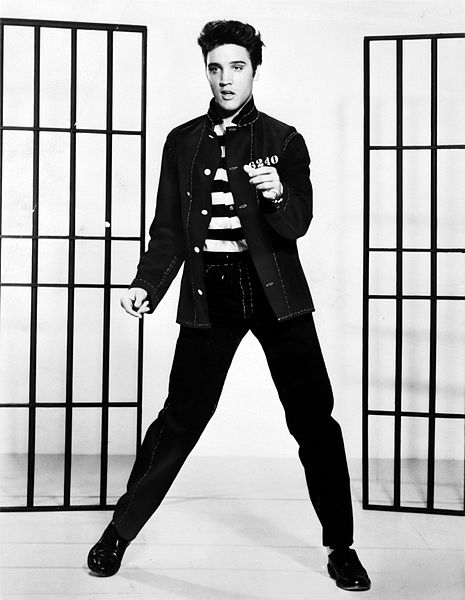“In as short a time as seven minutes of rock music, listeners can turn into white-loving racists.”
At least that’s the initial conclusion researchers from the University of Minnesota drew in a study they conducted on 138 students. For this research, students from different colleges were asked to listen to different musical genres for seven minutes, after which they must decide how much funds they should allocate to a range of ethnic-based groups in college.
There were four groups to be considered by the students when dividing the funds after listening to the music – the Rural and Agricultural Studies (the white American group), Arab American Studies, Latino American Studies, and Centres of African American Studies.
Below are the reported results of the study:
- Students who listened to mainstream rock such as Bruce Springsteen and The White Stripes gave 35% of the funds to the white American group and approximately equal amounts of the remaining fund to the three groups.
- Funding to white people doubled after students listened to radical “white power” music (Bound for Glory, Skrewdriver, and Prussian Blue). Associate professor Silvia Knobloch-Westerwick described the funding as “very targeted, almost punitive take-aways from the African-American and Arab-American groups.” Students allocated around 40% to white Americans, 25% to Latino-Americans, 16% to African-American, and 15% to Arab-Americans.
- Students who listen to Top 40 music – typified by Gwen Stefani and Akon – divided the funds equally among the different ethnic groups.
Breaking down rock music
At the most basic level, listening to music in general – despite being known as a leisurely, if not soothing activity – can shape our way of thinking. Knobloch-Westerwick said it best, “[m]usic has a lot of power to influence our thoughts and actions, more than we often recognize…It has the power to reinforce our positive biases toward our own group, and sometimes negative biases toward others.” Source:
What makes this study much more interesting are the controlled variables. Among all musical styles, rock is more ideology than anything else. It is all about presenting an idea to the masses and using instrumentation to orchestrate its message. Former rock critic Simon Frith refers to the musical genre as, “something more than pop, something more than rock and roll. Rock musicians combined an emphasis on skill and technique with the romantic concept of art as artistic expression, original and sincere.” Source:
Unlike pop music that is enraptured by capitalism, rock is more concerned with the expression of thought once pressed in a record.
However, much of the attention is directed towards the adverse negative effects of rock music on people. Since rock music is unhinged from the pangs of social morality, artists took liberties with their compositions and produced music that brought taboo topics to light such as drugs, sex, and social rebellion. Suffice to say, not all of the themes and lyrics that sprung from rock music, including the different offshoots that sprung from it, have been embraced by society. Looking at the Parents Music Resource Center‘s (PMRC) attempts to thwart predominant heavy metal and rock bands during the ‘80s for using foul language in their songs attest to how this type of music continues to be misunderstood over the years because it strives to be different.
Traces of racism in rock history
Going back to racism, Elvis Presley, long considered as “The King of Rock and Roll,” was originally embraced by the African-American community as one of the first people who disregarded the Memphis segregation law before he hit big by visiting an amusement park that was meant for blacks during “colored night.”

Borrowing heavily from blues music, Elvis Presley was deemed by some as racist not only for allegedly disrespecting the black community, but also taking ownership of “black music.”
However, rumors surfaced in 1957 of his racially insensitive remark targeting the African-Americans – he said that, “The only thing Negroes can do for me is to buy my records and shine my shoes.” Although the rumor remains as such – an African-American journal by the name of Louie Robinson saw no traces of Presley’s alleged racism during their interview – there are still some who believe that the King of Rock and Roll is not only racist, but also stole black music.
Among all the artists mentioned in the study, there are no reports that indicate The Boss (Springsteen) and Jack White (White Stripes) as favoring the white race over others. Only the “white power” music, which was an offshoot of White Power country music that sprung from Crowley, Louisiana, were the most open about their fight against everything that the black community represented. One of the genre’s major proponents is Johnny Rebel, whose venomous stance against African-American’s fight for social equality has spawned racist recordings filled with derogatory epithets against the black community.
A harsher and more visceral style of white power music is Nazi punk, which uses the aesthetics of punk music (minimalist approach and raw expression of form and content) but with right-wing politics and hatred for non-whites, anarchists, homosexuals, and Jews as its working ideologies. Skrewdriver was among one of the most popular violent skinhead bangs during the genre’s popularity during the late ‘70s.
What the results really mean
With all the misgivings towards rock music in general, does it really mean that listening to this genre makes the listeners a racist? Professor Heather LaMarre, who conducted the study, was given an opportunity at Fuse to clarify any misinterpretations about her findings. By holding the social experiment, Prof. LaMarre reiterated that “people who listened to music that they associated with their own ethnic identity treated their own ethnic group better than those from dissimilar groups [such as] ethnic minorities.”
Source: Calm Down, Internet: Rock Music Doesn’t Make You Racist
In other words, what the study wanted to showcase was the in-group favoritism that exists among people. The students gave more money to the white American group after listening to rock music not because they dislike the other races, but they simply prefer allocating their money to the group that shares their race.
With this reason, we could deduce that people who listened to “white power” music contributed more to the white American group because the music inhibited a sense of national pride that trickled down to the consciousness of the listeners. Conversely, listening to apolitical music by Gwen Stefani and Akon made listeners ambivalent towards their race, which caused the equal allocation of funds to all groups.
Ultimately, the study could have delved into deeper territory regarding the controlled variables and test subjects to draw more results such as what qualifies as non-rock music, more detailed demographics of the participants, and such. However, as far as rock music directly influencing people to racism goes? Consider this myth busted.


